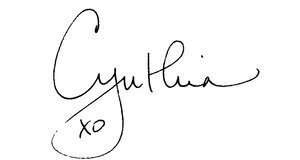Self-tending
“Be kind, whenever possible. It’s always possible.” His Holiness the Dalai Lama
I’ve been struggling with a promise to write to you, and for myself, about Self-Care. It’s a constant theme in professional essays, as well as public blogs, memes all over the place. But there was something about this phrase that made me want to use “air bunnies” whenever I said it. When I looked up definitions of “care,” I read Responsibility, Distress, Anguish, Caution, Concern. I dug deeper into the sensation that I truly long for within myself, for myself, and found “tenderness.” Gentleness, Kindness, Compassion, Warmth, Benevolence, Courtesy, Fondness, Friendship, Lovingness, Soft-hearted. Bingo. Tenderness shares a root word with “attention, tending to, intention” and therein lies the difference.
Being tender with yourself actually brings both together. Self-care implies discipline: iron-fisted routines that insure “hair to toes” are in the best shape possible. All good, necessary, not that hard. It’s just that when you add up the five minute rituals for each body part, keeping your drawers and closet organized, and frequent mindfulness-in-action and meditation, there is no time left in the day. Like to eat. Or earn money. As a full time worker, and owner of a body with special needs, I minimize my resentful eyeball roll at those who are retired when they say, “How did I ever find time to work!?” But I get it. It’s about priorities. But putting myself first, the classic “place the oxygen mask on yourself before you assist those around you” does not inspire. You know I’m going to be elbowing down the aisle with the other codependents who are making sure the airflow is good for others, only to unblissfully pass out, thereby pissing everyone off by blocking the drink cart. Because, if the plane is really going down….
But tenderness for myself? I can get behind that concept. It’s more an attitude than a directive. I can do the same activity, like flossing my teeth or clearing a counter, but with a gentler appreciation for how my body feels, my energy moving more spaciously through my soul. And if I don’t do it right (or at all), the world won’t end. The vehicle for this shift is to embrace something called a flow state. A few extra seconds, literally, takes me from worry-hurry-high achiever to a more peaceful being.
“Flow” was defined in 1990 by Mihaly Csikszentmihalyi, a Czech who was a WWII prisoner of war, who studied how people either resurfaced into new life after losing everything that mattered, or simply couldn’t. He invented the concept of “positive psychology” and within that, studied how people managed to get into a zone of high creativity and productivity without stress. This is often depicted as the zone between boredom and activity, and promises the height of imagination and peaceful, self-loving states. I encourage you to read the article linked at the bottom of the page to understand it more, and learn how to pronounce his name.
Try this thought experiment: You’ve volunteered to help a friend after a surgery, and you are committed to taking good care of them. This means providing food, clean PJs and sheets, medicines at the ready, asking “What is your pain level: 1-10?” And handing them anything they cannot reach. This is excellent care-giving. And then you take a breath, and look at them with loving eyes, and say, “How are you doing, really? Is there anything you want to say or ask for? Is it hard for you to be depending on me; can I make it easier in some way? What would give you the greatest joy and hope given your current state?” Now you are tending to them.
Applied to myself? It means waking without an alarm clock whenever possible, checking in to see if my body wants to arise or rollover, without judging the answer. Eating delicious foods that are also good for what ails me without distraction or rushing. Stopping to breathe, dropping my shoulders and straightening my spine (like now, while typing this piece) and remembering that the phrase, “I have all the time in the world,” has magical properties of resetting intention, thereby choosing what I really want and need, right now.
This is selftending.
https://positivepsychology.com/mihaly-csikszentmihalyi-father-of-flow/
Click here to purchase my book, The Courage to Trust.
Click here to purchase the audiobook of The Courage to Trust.
Click here to purchase my 90-minute guided visualization, Embracing True Prosperity.

